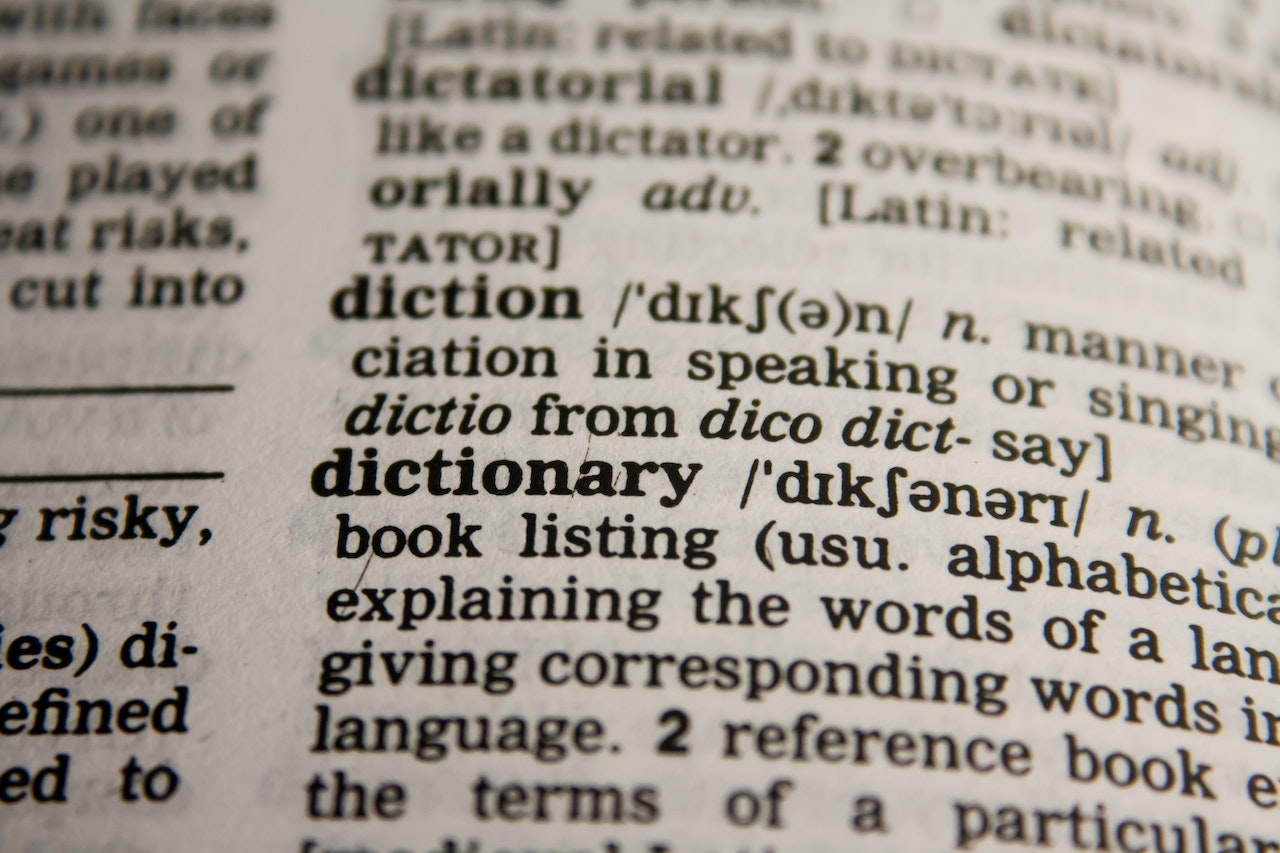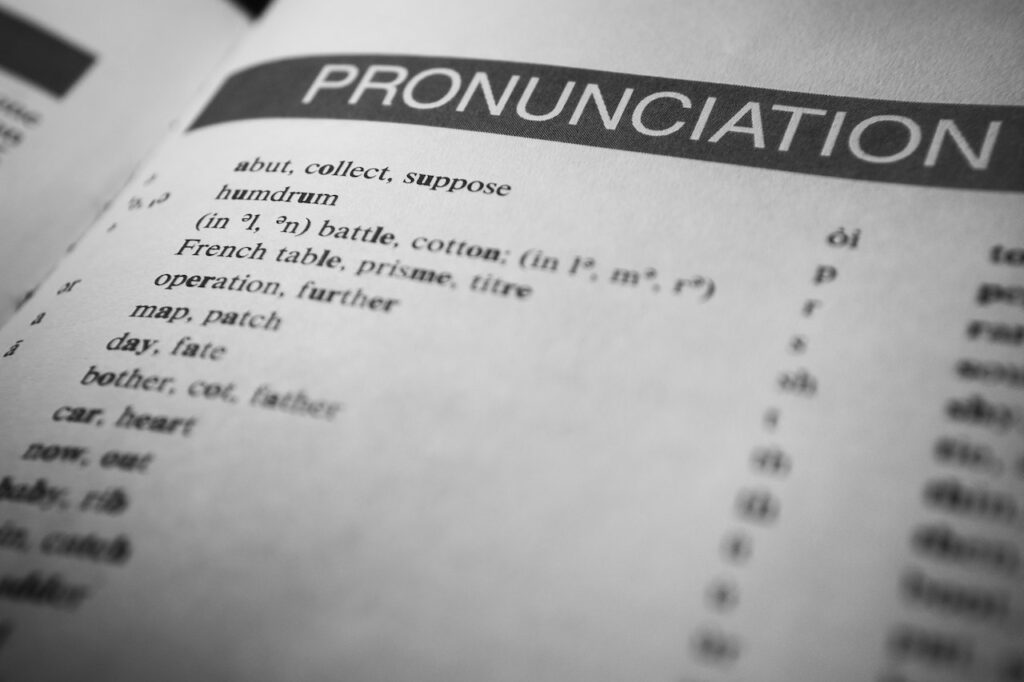Unraveling English Pronunciation Mysteries: Written Differently?

Hi, today, we embark on a captivating exploration of English pronunciation. Have you ever pondered the perplexing question of why English words often sound dissimilar to their written form? Fear not, as we delve into the fascinating reasons behind these irregularities. Join us on a journey to unravel the mysteries of English pronunciation!

Why English Pronunciation is different?
Historical Influences:
English has evolved over centuries, shaped by influences from various linguistic traditions. With its roots in Germanic origins, the language has integrated elements from Latin, French, and other languages. These diverse influences have resulted in a merging of different pronunciations and sounds (Barnett and Pihlaja, 2016). Thus, English has emerged as a tapestry of linguistic diversity.

Examples for Historical Influences:
Latin Influence: One of the major historical influences on English is Latin. After the Roman Empire’s conquest of Britain, Latin words and phrases began to seep into the language. For example, many legal and scientific terms in English have direct Latin origins, such as “pro bono” and “circa.”
French Influence: The Norman Conquest of England in 1066 brought an influx of French words into the English language. These French words, especially those related to government, law, and cuisine, have since become an integral part of English vocabulary. Examples include “government,” “jury,” and “restaurant.”
Norse Influence: The Viking invasions during the 8th-11th centuries left a lasting impact on the English language. Norse words and linguistic structures, particularly in Northern and Eastern England, were assimilated into Old English. Some common English words with Norse origins include “knife,” “husband,” and “skirt.”
Greek Influence: English has borrowed numerous words from Ancient Greek, especially in the realms of science, medicine, and philosophy. Words like “biology,” “philosophy,” and “psychology” find their roots in Greek and have enriched the English lexicon.
Dutch Influence: During the medieval period, English borrowed words from the Dutch language due to trade and cultural interactions. Words like “landscape,” “merry,” and “cookie” have Dutch origins and have become standard English vocabulary.
Scandinavian Influence: The Scandinavian languages, particularly Old Norse, left a significant imprint on English. Due to prolonged Viking influence, English grammar and syntax were notably affected, leading to changes in word order and use of auxiliary verbs.
Celtic Influence: Although the Celtic languages did not directly influence the English lexicon, they influenced the place names and geographical terminology in England. Words like “Avon” (river), “tor” (hill), and “combe” (valley) are of Celtic origin and can still be found in English place names today.
These examples highlight the rich historical tapestry that has shaped the English language into the diverse and dynamic linguistic entity it is today.
The Great Vowel Shift:
Imagine the 14th to 18th centuries, a period marked by the enigmatic Great Vowel Shift. This phonetic transformation brought about a significant change in the vowel sounds of English. However, the spelling of words remained relatively stagnant. Consequently, a disconnect between spelling and pronunciation ensued, leaving us with a maze of incongruent sound patterns (Crystal, 2003). The remnants of this historical shift continue to perplex language learners to this day.

Examples for The Great Vowel Shift:
- “Break”: The word “break” is spelled with the letter “ea,” which could lead one to expect a pronunciation like “bree-ak” based on the English spelling norm. However, due to the Great Vowel Shift, the vowel sound in “break” shifted from /e:/ to /ei/, resulting in the pronunciation “brayk.”
- “Meat”: The word “meat” is another example of the Great Vowel Shift’s impact on English pronunciation. While the spelling might suggest a pronunciation like “meet,” the vowel sound shifted from /e:/ to /i:/, giving us the pronunciation “meet.”
- “Book”: The word “book” exemplifies the inconsistencies between English spelling and pronunciation. The spelling suggests a pronunciation like “boo-k,” but as a result of the Great Vowel Shift, the long vowel sound /o:/ changed to /ʊ/ in some words, leading to the pronunciation “bʊk.”
- “Seen”: The word “seen” is a peculiar case where the spelling indicates a long vowel sound, like “see-n,” yet the Great Vowel Shift altered the pronunciation. In this case, the long vowel /e:/ shifted to the diphthong /i:/. As a result, we pronounce “seen” as “seen” rather than “see-n.”
- “Bite”: The word “bite” demonstrates how the Great Vowel Shift affected the pronunciation of English words. While the spelling might suggest a pronunciation like “beet,” the vowel sound transformed from /i:/ to /ai/ during the Great Vowel Shift, giving us the pronunciation “bait.”
These examples highlight the impact of the Great Vowel Shift on English pronunciation and the resulting inconsistencies between spelling and sound. Understanding this historical shift is crucial for comprehending why English pronunciation can be perplexing for language learners.
Borrowed Words and Phonemic Adaptation:
English is renowned as a language that enthusiastically absorbs words from other languages. When foreign words were incorporated into English, their pronunciations often underwent adaptations to fit the existing phonetic patterns. As a result, the spelling of these borrowed words may not accurately reflect their pronunciation (Ghosh and Walker, 2011). An intricate dance between diverse linguistic influences and the need for assimilation has played a role in the complex pronunciation landscape of English.
Examples for Borrowed Words and Phonemic Adaptation:
“Cafe” – The word “cafe” was borrowed from French, where it is pronounced as “ka-fey.” In English, however, it underwent phonemic adaptation to fit English pronunciation patterns. The “e” at the end of the word is pronounced as a long “e” sound, resulting in the pronunciation “ka-fee.”
“Taco” – The word “taco” comes from Spanish, where it is pronounced as “tah-ko.” In English, it underwent phonemic adaptation to conform to English phonetics. The “a” in “taco” is pronounced as a short “a” sound, resulting in the pronunciation “tah-ko” in English.
“Croissant” – The word “croissant” originates from French, where it is pronounced as “kwa-sahn.” In English, it underwent phonemic adaptation to align with English pronunciation norms. The “oi” in “croissant” is pronounced as “wah” in English, resulting in the pronunciation “kwa-sahnt.”
“Sushi” – The word “sushi” was borrowed from Japanese, where it is pronounced as “su-shee.” English applied phonemic adaptation to make it easier to pronounce. The “u” in “sushi” is pronounced as a short “u” sound, resulting in the pronunciation “su-shi” in English.
“Doppelgänger” – “Doppelgänger” is a German loanword used in English to describe a double or look-alike. The original German pronunciation is “doh-puhl-geng-er,” but in English, the phonetic adaptation changed the “ä” to an “ae” sound, resulting in the pronunciation “doh-puhl-gang-er.”
These examples illustrate how borrowed words in English have undergone phonemic adaptation to assimilate into the language’s pronunciation patterns. The need to balance linguistic influences and ease of pronunciation has contributed to the unique phonetic landscape of English.
Silent Letters and Phonemic Evolution:
Ah, the silent letters! They lurk in words, defying pronunciation rules and adding an extra layer of complexity. From the silent ‘h’ in “honor” to the elusive ‘k’ in “knee,” these letters are often vestiges of earlier spellings or influenced by the phonology of the languages of origin (Fernald, 2006). While they may confound learners, they provide insight into the historical evolution of English and the idiosyncrasies that make the language uniquely captivating.
Silent Letters and Phonemic Evolution Examples
“Psychology” – The word “psychology” has a silent ‘p.’ The ‘p’ was retained from its Greek origin, where the letter ‘p’ was pronounced. Over time, English pronunciation evolved, and the ‘p’ became silent, resulting in the pronunciation “sigh-kol-uh-jee.”
“Debt” – The word “debt” contains a silent ‘b.’ The ‘b’ was present in the Middle English spelling “dette” but was no longer pronounced in later stages of the language. Consequently, we pronounce “debt” as “det.”
“Island” – The word “island” features a silent ‘s.’ Originally spelled “iland” in Old English, the ‘s’ was added due to a mistaken association with the Latin word “insula.” Although the spelling was modified, the ‘s’ is no longer pronounced, giving us the pronunciation “eye-luhnd.”
“Gnome” – The word “gnome” has a silent ‘g.’ It was borrowed from Greek, where the ‘g’ was pronounced. However, in English, the pronunciation shifted, and the ‘g’ became silent, resulting in the pronunciation “nohm.”
“Wrist” – In the word “wrist,” the ‘w’ is silent. It was retained from the Middle English spelling “wryst.” Although the ‘w’ was historically pronounced, it eventually became silent, leading to the pronunciation “rist.”
These examples demonstrate how silent letters in English words can be remnants of historical spellings or influenced by the phonology of their languages of origin. While they may pose challenges for learners, they add depth and intrigue to the evolution and idiosyncrasies of English pronunciation.
Regional Variation and Dialectal Diversity:
English stretches its linguistic wings across the globe, adapting and morphing into a myriad of regional variations and dialects. From the lilting accents of the British Isles to the distinct cadence of North American English, each region adds its own flavor to the language (Krämer, 2015). These regional variations further complicate the consistent pronunciation of English words, making it a tapestry of diverse sounds and intonations.
Regional Variation and Dialectal Diversity Examples
“Water” – In some dialects of British English, particularly in the West Country region, the word “water” is pronounced as “watter” with a distinct “a” sound instead of the standard “o” sound.
“Car” – In some parts of the United States, particularly in the Boston area, the word “car” is pronounced with a distinctive “ah” sound, resulting in a pronunciation closer to “cah.”
“Bath” – In the North of England, particularly in Yorkshire, the word “bath” is pronounced as “barth,” with the short “a” sound being replaced by a broader “a” sound.
“Dance” – In certain regions of Australia, specifically in the state of Victoria, the word “dance” is pronounced with a softer “a” sound, resulting in a pronunciation that may sound closer to “darnce.”
“Route” – In different parts of the United States, there are variations in the pronunciation of the word “route.” In the eastern regions, it is commonly pronounced as “root,” while in the western regions, it is more commonly pronounced as “rowt.”
These examples illustrate how regional variations and dialects can lead to diverse pronunciations of English words. The intricate tapestry of sounds and intonations adds richness and complexity to the English language, reflecting the diversity and cultural nuances of different regions.
Other Guide Articles on English Learning
Conclusion:
Congratulations on navigating the twists and turns of English pronunciation! Throughout our engaging exploration, we encountered the historical influences, the Great Vowel Shift, borrowed words, silent letters, and regional variations that contribute to the complex nature of English pronunciation.
Remember, fluency in English encompasses not only understanding its grammar and vocabulary, but also embracing the intricacies of its pronunciation. Embrace the beauty of English’s ancestry and the rich diversity of its regional expressions.
As you continue your language learning journey, practicing regularly and exposing yourself to authentic English pronunciation through native speakers and language resources will enhance your understanding and mastery of this fascinating global language. But Cambridge Dictionary is a good resource if you want to listen online.
May you venture forth with confidence, armed with a deeper understanding of why English is not pronounced as it is written. Embrace the challenges, explore the nuances, and revel in the intricate dance that is English pronunciation.
References for English Pronunciation:
- Barnett, M., & Pihlaja, S. (Eds.). (2016). The Oxford Handbook of Phonological Theory. Oxford University Press.
- Crystal, D. (2003). English as a Global Language (2nd ed.). Cambridge University Press.
- Fernald, T. B. (2006). English Phonology and Pronunciation Teaching. Asian EFL Journal, 8(3), 171-177.
- Ghosh, A., & Walker, R. (2011). English Pronunciation Teaching and the English Language Teacher. Routledge.
- Krämer, M. (2015). Sociolinguistic variation and change in British English. Cambridge University Press.

0 Comments